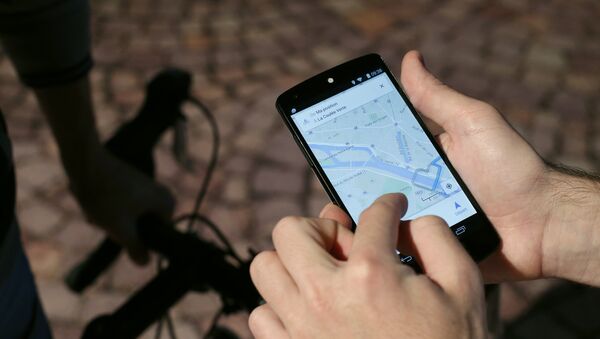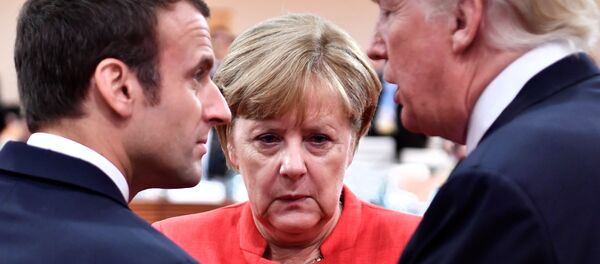The alleged indiscriminate harvesting of personal data by giant tech companies like Google offers an opportunity for the newly-emerged and fast-developing search engines.
Sputnik has discussed the issue with Fahad Malik, Afganistan-based digital media strategist.
Sputnik: What is known about Qwant, the French and German search engine? How is it different from Google?
Fahad Malik: When Qwant was launched, it promised to protect its user’s privacy.
Now the question is what exactly they mean by a user’s privacy, as Qwant was powered by Bing when they launched, their search was taken from Bing, and Bing works on exactly the same model, as Google (using cookies to show personalised results to their users).
Not much is different in fact Google’s search time, social media integration, crawling and quality of results is unmatchable with Qwant. I mean you can’t wake up one day and try to dethrone or replace something which was launched 20 years ago!
Sputnik: How will French institutions benefit from using Qwant instead of Google? Do you think that Germany is likely to follow these footsteps?
Fahad Malik: I don’t think so French institutions will benefit general public by implementing use of Qwant, as they blame Google for monitoring or tracking users, but that alleged tracking’s data is with Google, though they can track people using Qwant, but that would be in their direct access, and they can use it for their own purpose.
How a search engine which claimed to be a new generation search engine, but used Bing to power their search, is going to be different and beneficial? Germany is likely to follow the same footsteps, as Germany has strict social media & digital monitoring and is making laws for social media censorship.
Fahad Malik: As mentioned earlier, France is trying to have all that information in its own access rather than to rely on Google. Qwant is said to be different, but is not much different from Google.
Google does not steal anything, you give consent to use cookies.
After the Cambridge Analytica scandle, all digital platforms and companies revised their protections and made their policies strict regarding regulation of internet as well as protecting the user’s privacy. Also the latest General Data Protection Regulation (GDPR) is the most important change in data privacy regulation in 20 year which focuses on protection of users.
Sputnik: What’s your take on the problem of digital sovereignty and how can this issue be resolved?
Fahad Malik: As Digital sovereignty means that internet users can freely and independently decide which data can be gathered, distributed, used and saved about them.
In 2018, and recent developments about privacy protection, I believe we are in the right direction, and users give right to a particular channel or network about the information which is used or saved.
It is also necessary for the user to have access to his information, and information needs to be processed or used according to the laws of the country of the user rather than the laws of the country where the information is stored.
We are in the right direction, and expansion of security of information technology & digitalization will make things better in coming years.
Views and opinions expressed in this article are those of Fahad Malik and do not necessarily reflect those of Sputnik.





